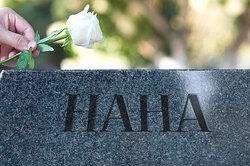It rises in the northern slopes of the Koh-i-Baba to the west of Kabul, and finally loses itself in the Tejend oasis north of the Trans-Caspian railway and west of Merv.
With the opening of the Russian railway from the Caspian to Merv, Bokhara and Samarkand in 1886-1887, Russian manufacturers were enabled to compete in Central Asia with their western rivals, and the value of European manufactures passing Meshed in transit was much reduced.
During their dominion Merv, like Samarkand and Bokhara, was one of the great schools of learning, and the celebrated historian Yaqut studied in its libraries.
Toghrul was succeeded by his nephew Alp Arslan (the Great Lion), who was buried at Merv.
When Sir Alexander Burnes traversed the country in 1832, the Khivans were the rulers of Merv.
